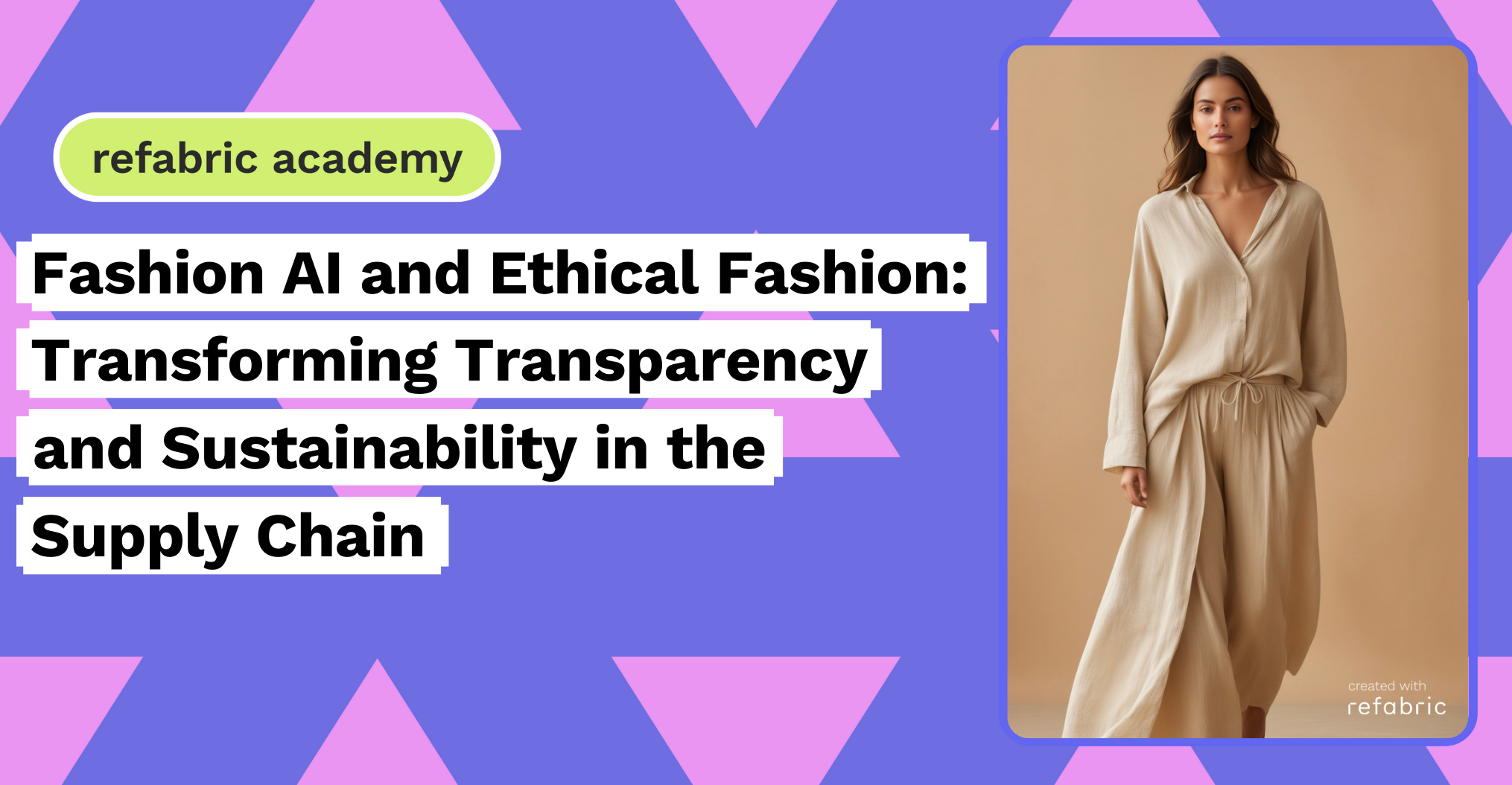Fashion AI is revolutionizing the fashion industry, which has been grappling with mounting pressure to adopt more ethical practices and ensure sustainable production. The rise of fast fashion has exacerbated environmental concerns, led to exploitative labor practices, and contributed to a system of unsustainable consumption. However, with the advent of AI-driven solutions, the landscape is being reshaped, with fashion AI playing an integral role in promoting transparency, accountability, and sustainability across the entire supply chain.
In this article, we’ll explore how fashion AI is enhancing ethical production practices and bringing visibility to supply chains, benefiting both the industry and consumers.
Enhancing Supply Chain Transparency
Supply chains in the fashion industry are notoriously complex, spanning multiple countries, involving countless manufacturers, suppliers, and raw material producers. Traditionally, tracing the journey of a garment from raw material to finished product has been a challenging and opaque process. Fashion AI, however, is proving to be a game-changer.
AI-powered tools are increasingly being used to monitor every stage of the supply chain. These systems can track and record data from each step, ensuring that ethical practices are adhered to. For example, fashion brands can now use AI-based blockchain technology to document the entire production process, from the origin of raw materials to the working conditions in factories. Blockchain systems are decentralized and tamper-proof, meaning that once the data is logged, it cannot be altered. This ensures that brands—and consumers—can have confidence in the veracity of the claims being made about the ethical production of a garment.
Consumers today demand transparency from the brands they buy from. Fashion AI helps to meet this demand by providing accurate and easily accessible information about the origins and journey of their clothes, giving them the ability to make more informed purchasing decisions.
Ethical Labor Practices
One of the most pressing concerns in fashion is the treatment of workers. Reports of exploitative working conditions, child labor, and insufficient wages are unfortunately too common in parts of the global fashion supply chain. Fashion AI can play a pivotal role in ensuring ethical labor practices are followed.
Fashion AI systems can be used to monitor working conditions and labor practices across different factory locations. For example, wearable technology, coupled with AI-driven analytics, can be introduced to track worker health and safety in real-time. These AI-driven tools can alert both the factory and the brands if working hours exceed legal limits or if there are unsafe working conditions, creating an opportunity for intervention. Furthermore, fashion AI can help detect anomalies in production patterns, such as sudden spikes in output that may suggest forced labor or unsafe working conditions.
Brands using fashion AI in this capacity are better equipped to verify that workers are being treated fairly and ethically, ensuring that they uphold their corporate social responsibility (CSR) commitments.
Reducing Environmental Impact
Sustainability has become a major concern for consumers and brands alike, particularly in light of fashion’s significant contribution to global pollution. AI-driven tools are being employed to reduce the environmental impact of fashion production by optimizing processes, predicting demand, and minimizing waste.
For instance, fashion AI can be used to implement predictive analytics to better forecast demand. By more accurately predicting which styles will be popular and in what quantities, brands can avoid overproduction, a key contributor to textile waste. This reduces the need for unsold inventory, minimizing the amount of clothing that ends up in landfills.
Additionally, fashion AI can play a role in tracking the environmental footprint of garments by measuring carbon emissions and water usage throughout the production process. By using AI, fashion brands can set benchmarks for sustainability and monitor their progress over time. Such systems can even suggest more environmentally friendly alternatives at each step of the supply chain, such as using eco-friendly dyes or sourcing organic cotton.
Verifying Certifications with Fashion AI
In an era where greenwashing is a major concern, fashion AI is helping to ensure that certifications related to sustainability and ethical production are legitimate. AI-powered algorithms can cross-reference claims made by manufacturers with actual production data to verify whether they meet the necessary standards for certifications such as Fair Trade, GOTS (Global Organic Textile Standard), or OEKO-TEX.
By leveraging machine learning, these systems can continuously improve their ability to detect fraudulent certifications and alert brands to potential risks before they reach the consumer market. This strengthens the integrity of the certifications and ensures that ethical fashion claims are not misleading.
The Future of Ethical Fashion
As fashion AI continues to evolve, its role in promoting ethical and sustainable fashion is likely to become even more prominent. From tracking the origin of raw materials to ensuring fair labor practices and reducing waste, fashion AI is enabling brands to take real action toward a more transparent and responsible fashion ecosystem.
For consumers, this means greater confidence that the clothing they buy aligns with their values, helping them support brands that prioritize ethical production and environmental sustainability. In the coming years, as fashion AI tools become even more sophisticated, the fashion industry could see a radical transformation toward more transparent, ethical, and sustainable practices.
